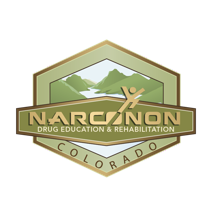Getting through the First Year of Sobriety

Making any major life change is a challenge, to say the least. Overcoming an addiction? Well, that can be even more challenging. That’s not to say it isn’t possible—people recover from addiction everyday.
Too many people get easily discouraged when they figure out that not all of their problems go away once they get sober. Addiction causes a lot of destruction to every aspect of a person’s life and it takes time to repair all that was done. It’s important to be patient and kind to yourself in early recovery because it is a process of healing and change. These things take time.
Getting through withdrawal and early cravings can be difficult. The good news is that it isn’t always going to be like that. Things may get worse for a while but with time they will get better. In my personal experience and from working with others I found that the first year is always the most challenging. After that, each year gets a little easier when it comes to staying sober.
So how does a person get through that first year of sobriety? Here are some tips and tricks I have learned along the way:
1. Find a good treatment program that will help address every aspect of your addiction
A good addiction treatment program has the ability to lay a solid foundation for a life of sobriety. It is important to know that not all treatment centers are created equally and it is essential to find one that will address the many layers of recovery. Addiction is not a single faceted problem and therefore it cannot be effectively treated as one.
2. Learn new life skills that will help you live a better life
In order to live a new life of sobriety, it is necessary to learn how to develop skills that will help you to live a better life. Addiction recovery requires a person to develop healthy habits, learn how to identify positive and negative influences and how to work through problems in a constructive way.
3. Stay away from people and places that are likely to cause a relapse
You can’t expect to stay sober for long if you are going to bars or hanging out with people while they are using drugs. Aside from being completely uncomfortable, it is also just a really bad idea. Finding new ways to have fun and meeting positive people to hang out with will make the transition to living a sober life much easier.

4. Develop and maintain a good support system
Whether it is a close friend, family member or professional from a treatment center, it is important to have people you can talk to when tough times come up. It is often a good idea to have a combination of resources available to you in order to always have a shoulder to lean on when needed. People are social creatures and we cannot get through this life alone, we can try to do so but we aren’t really living when we do.
5. Don’t be afraid to ask for help if you need it
Always reach out for help when you need it. Pride has been the downfall for many a person. This is another reason it is so important to have a good support system in place. It is never a matter of “if something difficult will come up in life” but rather “when something difficult will come up.” There is no shame in needing assistance.
6. Remember that the tough times won’t last
We all go through challenging times in life and learning how to do so without the use of drugs or alcohol can be especially difficult. Just remember that every time you get through a hard day without resorting to drinking or using drugs you become a little stronger. The tough times won’t last and the bad feelings will go away if you are willing to work through them.
7. Focus on why you wanted to get sober in the first place
It can be all too easy to sit back and reminisce on good times you had during the early days of substance abuse. Everyone has their own funny stories to tell. The thing is that if you got to the point where your substance use turned into an addiction, then the bad that came from it far outweighed any fun times you may have had. If your mind starts to wander and you think to yourself “what if…” shut it down by remembering all the destruction it has caused in your life.

8. Keep track of all the achievements you complete along the way
Sobriety provides an opportunity for people to set and achieve goals that would never have been possible during active addiction. Sometimes we can get caught up in negative thinking patterns which is why it is a good idea to keep a journal of all the things you have overcome on your journey. If you start feeling down on yourself pull the journal out and remember just how far you have come.
9. Take responsibility for the past but don’t get stuck there
It’s important to own up to our past mistakes, learn from them and when we are able to do so, make up for the damage we have caused. All that said, it is also important to not get stuck in the past because when we do we are not able to fully live our lives in the present.
10. Never, ever, ever give up
It may sound too simple but the most important thing of all is to always keep pushing forward and to never give up.
A life of recovery will never be perfect, there is no such thing as a perfect life out there. One thing is for sure though, a life of long-term recovery will always be better than a life of long- term addiction.


